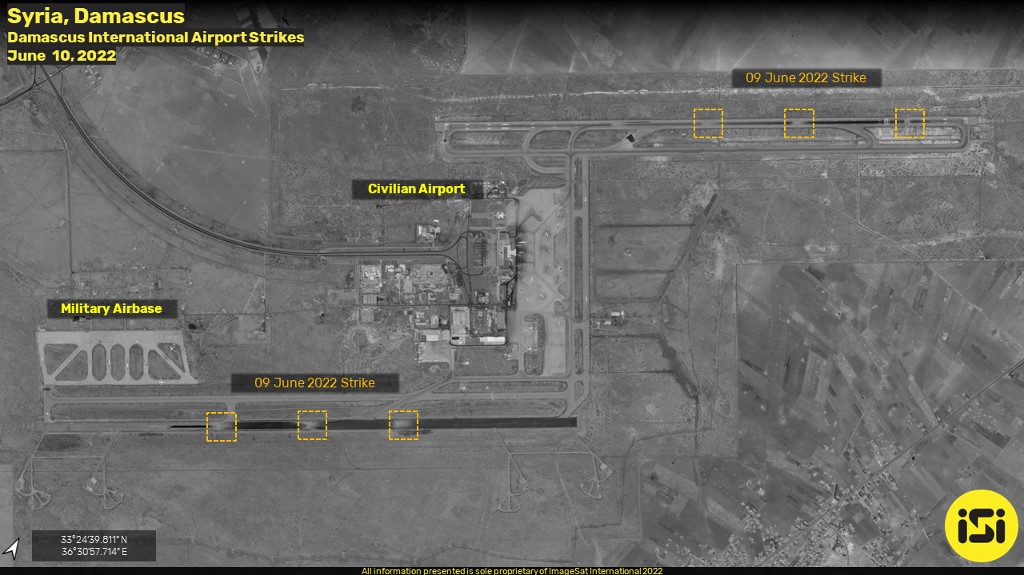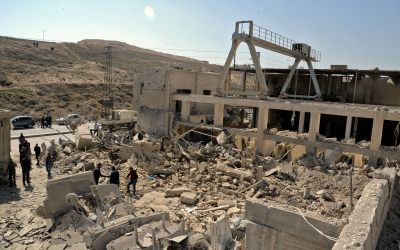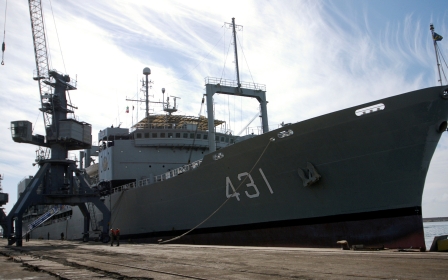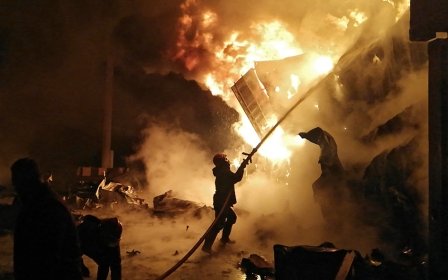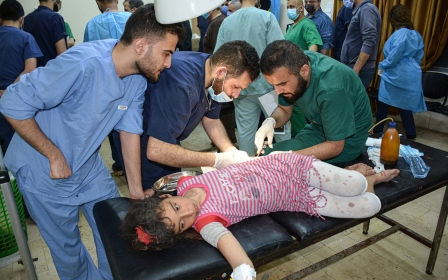Syria: Israel's Damascus airport strike paralyses travel and heralds new phase of conflict
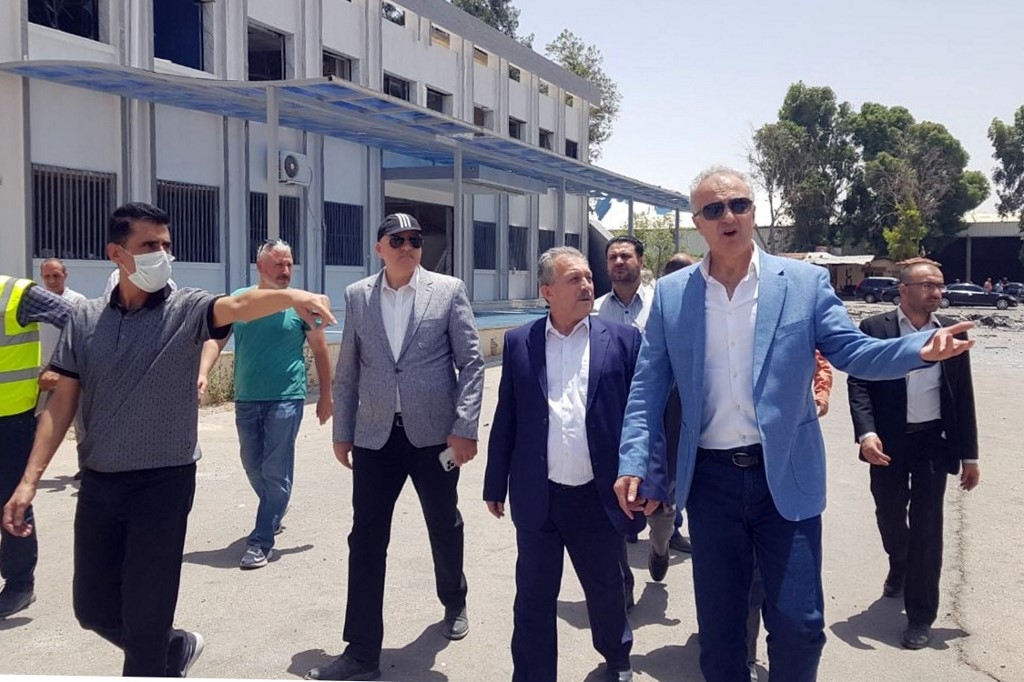
Shortly after dawn on 10 June, Damascus International Airport was bombarded by Israeli missiles, leaving three huge craters in each of its two operational runways.
Syrian Civil Aviation authorities issued a statement confirming the closure of runways 23R and 23L, citing a "WIP" [work in progress], with the estimated reopening date set for 20 June. Syrians awoke to find their flights had been diverted or cancelled as the Syrian Airways fleet was immediately grounded, adding more strain to the country's war-battered aviation industry.
Since the Syrian civil war began in 2011, Israel has carried out hundreds of air strikes against Syria, targeting government troops, Iran-backed forces and Hezbollah fighters.
New MEE newsletter: Jerusalem Dispatch
Sign up to get the latest insights and analysis on Israel-Palestine, alongside Turkey Unpacked and other MEE newsletters
While Israel rarely comments on individual air strikes, it has acknowledged carrying out hundreds of them, which it says are necessary to prevent Iran from gaining a foothold in Syria.
After the latest attack, Syrian Airways' two working planes, an A320 and an A340, were stranded at the airport, along with an A320 owned by the privately run airline Cham Wings. Two other Cham Wings aircraft were away on flights, allowing them to safely redirect to Aleppo.
Syrian Transport Minister Zuhair Khuzaim said: "The workshops are working around the clock to restore Damascus International Airport to service as soon as possible, and it will be put back into service within the next few days."
He also confirmed the extent of the devastation.
"The second passenger terminal had suffered significant material damage, due to the Israeli bombardment," Khuzaim said.
The Ministry of Transport, alongside Syrian Airways, sent out an apology to customers and agreed to pay compensation or rebook tickets for all those affected by the closure of the airport. They also said they would refund negative PCR tests.
Meanwhile, Syrian Prime Minister Hussein Arnous visited the airport on 12 June, directing workshops to speed up repairs to damaged parts of the airport.
A member of the ground staff working with Syrian Airways told Middle East Eye: "We were surprised that this kind of attack happened on a civilian airport, even if we fix it [runway] when will it stop?
"There is a possibility that this might happen again. I and my team survived the strike but the country is now restricted from an aviation perspective, there are no guarantees this won't happen again."
He added: "It will take days and weeks to fix the damage, the craters are big, this is technical work that needs much attention and precision, this is a runway, not a normal road. We will also struggle to find the materials needed."
'Irresponsible actions'
The attack was met with disapproval by Syria's allies.
Russian Foreign Ministry spokesperson Maria Zakharova said: "Russia strongly condemns the Israeli air strike on Damascus International Airport and calls on the Israeli side to stop this vicious practice."
She added: "Such irresponsible actions create serious risks for international air traffic and put the lives of innocent people in real danger."
Iranian Foreign Minister Hossein Amir-Abdollahian said that "Israel's attacks on Syria's infrastructure are not only in violation of the country's sovereignty and territorial integrity, but also contravene international laws and humanitarian principles".
'It is unlikely that Israel will stop the air strikes as long as Damascus is allowing Iran to utilise Syria in a military capacity'
- Ruwan al-Rejoleh, consultant specialising in Syria
Senior Hamas official Khalil al-Hayya condemned the attack and said "the Israeli occupation continues to target Syria because it is unable to subdue the country".
There was no official reaction from Israel. It has previously accused Iran of smuggling weapons and men into Syria through the airport and attacked the Syrian port of Latakia in December 2021.
Tamir Hayman, a former head of Israeli military intelligence, said that "on the strategic level the operational pressure [air strikes] are intended to halt Iran's consolidation in Syria".
Yet the calibre of the attacks on the airport and the scope of destruction indicate that the relationship between Syria and Israel is likely to become more heated in the immediate future, say analysts, with the Israelis using the deliberate tactic of taking out infrastructure.
"It is unlikely that Israel will stop the air strikes as long as Damascus is allowing Iran to utilise Syria in a military capacity," Ruwan al-Rejoleh, a Washington-based consultant specialising in Syria, told MEE.
"Syria will remain a target. Given the inflation and the sanctions, even if they fix the airport, unless Damascus changes its approach, things will continue on the current trajectory."
Middle East Eye delivers independent and unrivalled coverage and analysis of the Middle East, North Africa and beyond. To learn more about republishing this content and the associated fees, please fill out this form. More about MEE can be found here.


